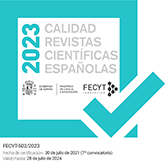Ecomont Ecological Effects of Land Use Changes on European Terrestrial Mountain Ecosystems
DOI:
https://doi.org/10.3989/pirineos.1996.v147-148.141Abstract
As a contribution to the Terrestrial Ecosystem Research Initiative (TERI) within Framework IV of the EU, ECOMONT aims at investigating ecological effects of land-use changes in European terrestrial mountain ecosystems. ECOMONT is coordinated by Prof Cernusca (University of Innsbruck) and is carried out by eight European partner teams in the Eastern Alps, the Swiss Alps, the Spanish Pyrennees and the Scottish Highlands. ECOMONT focuses on an analysis of structures and processes in the context of land-use changes, scaling from the leaf to the landscape level. The following research topics are being investigated: Spatial distribution of vegetation and soil in the composite experimental sites; physical and chemical soil properties, SOM status and turnover; canopy structure, primary production, and litter decomposition; water relations of ecosystems and hydrology of catchment areas; microclimate and energy budget of ecosystems; gas exchange of single plants and ecosystems; gas exchange between the composite experimental sites and the atmosphere, population and plant biology of keyspecies, plant-animal interactions, potential risks through land-use changes; GIS; remote sensing - environmental mapping; modeling activities integrating from plant to ecosystem and landscape level. First results of ECOMONT show that land-use changes have strong impacts on vegetation composition, structure and processes, on soil physics and chemistry, and therefore strongly affect exchange processes with the atmosphere and biogeochemical cycles. Abandonment of traditional agricultural practices (grazing, mowing) causes characteristic changes of the vegetation. In most cases a successional reversion over many decades reaches its climax with the vegetation growing naturally at the sites. Sometimes, however, abandonment can also lead fo a degradation of vegetation and soil. In spite of common principles of changes of vegetation, soils and related processes with altered land-use geology, climate, exposition, slope inclination and land-use history may play an important role in determining species composition and specific patterns and processes on a community, ecosystem and landscape level in different European terrestrial mountain ecosystems.
Downloads
Download data is not yet available.
Downloads
Published
1996-12-30
How to Cite
Cernusca, A., Tappeiner, U., Bahn, M., Bayfield, N., Chemini, C., Fillat, F., Graber, W., Rosset, M., Siegwolf, R., & Tenhunen, J. (1996). Ecomont Ecological Effects of Land Use Changes on European Terrestrial Mountain Ecosystems. Pirineos, 147-148, 145–172. https://doi.org/10.3989/pirineos.1996.v147-148.141
Issue
Section
Articles
License
Copyright (c) 1996 Consejo Superior de Investigaciones Científicas (CSIC)

This work is licensed under a Creative Commons Attribution 4.0 International License.
© CSIC. Manuscripts published in both the printed and online versions of this Journal are the property of Consejo Superior de Investigaciones Científicas, and quoting this source is a requirement for any partial or full reproduction.All contents of this electronic edition, except where otherwise noted, are distributed under a “Creative Commons Attribution 4.0 International” (CC BY 4.0) License. You may read here the basic information and the legal text of the license. The indication of the CC BY 4.0 License must be expressly stated in this way when necessary.
Self-archiving in repositories, personal webpages or similar, of any version other than the published by the Editor, is not allowed.













